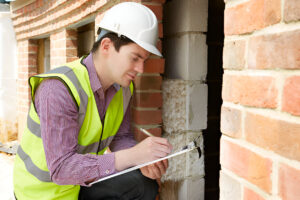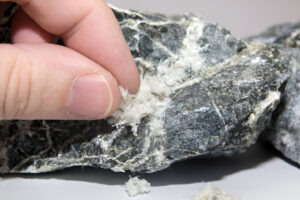Could there be a hidden danger lurking in your drinking water? Lead contamination is a serious concern, especially in older homes and facilities. Additionally, it’s completely undetectable by sight, smell, or taste.
For these reasons, certified lead testing isn’t just a wise choice. For many properties, it’s an essential safeguard for health. Lead exposure, even at low levels, can have significant impacts, particularly on the developing minds of children.
In this blog post, we explore why proactive water testing for lead is so critical. We also delve into the risks associated with lead in your water supply and clarify what makes a water tester truly certified. We’ll also explain the importance of professional lead testing for accurate results.
Why Lead in Water is a Serious Concern
It’s natural to assume the water flowing from your tap is safe. But just because the water is clear does not mean it safe from lead.
Lead is a highly toxic metal. Even small amounts consumed over time can have devastating health consequences. For children, the risks are particularly alarming. Lead exposure can severely impact their brain development. This then leads to learning disabilities, behavioral problems, and a lower IQ.
Adults aren’t immune either. Lead can contribute to kidney damage, high blood pressure, and neurological issues.
So, where does lead in water come from? Often, it’s a legacy of older plumbing. Homes and buildings built before 1986 are more likely to have lead service lines, lead pipes, and fixtures. As water flows through these old systems, tiny lead particles can leach into your drinking supply.
The worst part? You can’t see it, taste it, or smell it. This silent contamination makes professional water testing absolutely essential. It’s the best way to confirm lead presence and protect your health.
The Importance of Certified Lead Water Testing
When it comes to protecting your health from lead, you don’t need any water testing. You need certified lead testing. But what does it truly mean?
- Adherence to Standards: Certified testing is performed by qualified professionals. These pros follow strict industry standards and, where needed, state or national regulations.
- Accredited Laboratories: Samples are processed by accredited laboratories. These labs have met rigorous criteria for competence and accuracy in their analyses. Their processes guarantee reliable results.
You might have come across DIY lead test kits. But these often provide unreliable results. They can miss low levels of lead or give false positives. Wrong readings result in unnecessary worry or a false sense of security.
Professional certified lead testing eliminates this guesswork. It ensures:
- Accuracy: You get precise, scientifically-backed data about your water quality.
- Reliability: The results are consistent and trustworthy.
- Legal Compliance: For regulated facilities, like childcare centers certified testing is crucial. It provides legally defensible results crucial for meeting requirements.
Opting for certified services means you’re not simply testing. You’re gaining a trustworthy assessment backed by expertise and precise scientific methods.
Who Needs Certified Lead Water Testing?
The dangers of lead are universal. But certain properties and situations make certified lead testing an absolute necessity. These include:
Residential Properties
Was your home built before 1986? The likelihood of having lead pipes and fixtures are significantly higher. Homeowners in these older homes should consider water testing to ensure their family’s safety. Even newer homes can be at risk if they have older plumbing components or are connected to older municipal service lines.
Commercial Buildings
Any commercial building with drinking fountains, kitchenettes, or restrooms supplying potable water should consider certified lead testing. Professional testing ensures the health of employees, customers, and visitors.
Educational Facilities
Schools, universities, and especially childcare centers are under increased scrutiny when it comes to water safety. Regulations like California’s Assembly Bill 2370 highlight the critical need for certified lead testing in these environments. For instance, such regulations often require:
- Testing performed according to specific guidelines.
- A certified water tester for each location.
- Inspection and testing of all water drinking faucets.
- Samples sent to certified chemical laboratories approved for lead testing.
- Submission of all results to state data systems and provision of test results to the facility.
This rigorous approach ensures the safety of the most vulnerable populations.
Healthcare Facilities
Hospitals, clinics, and other medical centers must maintain the highest standards of safety and hygiene. Water testing for lead is crucial here to protect patients, staff, and visitors, especially those with compromised immune systems.
In essence, if people are drinking water from your property, certified lead testing is a proactive step towards ensuring their well-being and fulfilling your duty of care.
Our Certified Lead Water Testing Process
When you choose a professional for your water testing needs, you’re investing in a clear, systematic approach designed for accuracy and your peace of mind. Our process for certified lead testing is thorough and transparent. This ensures you receive reliable results and expert guidance.
Here’s what you can expect:
- Initial Consultation and Site Assessment: We begin by understanding your specific concerns and property details. Our water tester will assess your site to identify potential sources of lead and determine the optimal sampling strategy.
- Expert Sample Collection: Our highly trained and certified lead tester will meticulously collect water samples from various designated points in your property. This crucial step follows strict protocols to prevent contamination and ensure the samples accurately represent your water quality.
- Accredited Laboratory Analysis: All collected samples are sent to independent, accredited chemical laboratories. These labs use advanced testing methods to precisely measure lead levels, adhering to the highest industry standards for accuracy.
- Clear, Understandable Reporting: Once the analysis is complete, you’ll receive a comprehensive report detailing the findings. We ensure these results are presented in a clear, easy-to-understand format, avoiding confusing jargon.
- Guidance on Next Steps: If lead is detected at concerning levels, we don’t just leave you with the data. We provide clear, actionable guidance on the appropriate next steps. Whether it’s further investigation, remediation options, or connecting you with relevant resources.
Ensure Water Safety with Certified Lead Testing
Protecting your property from lead contamination is a vital step in safeguarding health. Certified lead testing offers the accuracy and peace of mind you need, going beyond assumptions to provide concrete data about your water quality. Don’t wait for potential problems to arise; proactive water testing by a professional water tester is the best defense.
Take control of your water safety today. Contact Funguy Inspections, your experienced provider of certified lead testing, to ensure a healthier environment for everyone.
Frequently Asked Questions About Lead Water Testing
How often should I get my water tested for lead?
For homeowners, a single test is often sufficient, especially in older homes (pre-1986) or if concerns arise. However, facilities like childcare centers and schools often face regulatory mandates (e.g., AB 2370). These may require regular, routine water testing, sometimes annually.
What should I do if lead is detected in my water?
Immediately stop using the affected water for drinking or cooking. Contact a qualified professional to interpret the results and discuss remediation. Options may include identifying and replacing lead components, or installing certified lead-reducing filters. Always seek expert advice before taking action.
What makes a lead water tester “certified”?
A “certified” water tester has specific training in lead sampling protocols, safety, and assessment methods. This certification, often from state or national bodies, ensures they follow strict industry standards. It guarantees samples are collected correctly and processed by accredited labs, leading to reliable, legally defensible certified lead testing results.
Related Articles:
The Importance of Lead Inspection Services for Your Home and Business
Prevent Children’s Exposure to Lead
Why Lead Inspection Is Crucial for Older Homes




